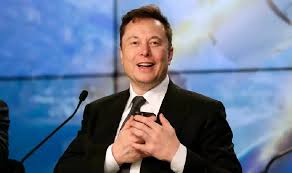Tesla CEO Elon Musk has announced plans to significantly reduce his involvement with the U.S. government, following a sharp decline in the company’s profits and vehicle sales for the first quarter of the year.
Musk, who has headed the Department for Government Efficiency (Doge) since last year, said his commitment to the advisory role would be reduced to just one or two days per week starting next month. The move follows mounting criticism that his government role has distracted him from leading Tesla at a time of financial strain.
The billionaire’s close ties to President Donald Trump’s administration—highlighted by a $250 million donation to Trump’s re-election campaign—have triggered global protests and calls to boycott Tesla vehicles. Musk’s reduced role coincides with the approaching expiration of a 130-day annual limit for temporary government workers, a threshold he is expected to reach by late next month.
Despite stepping back, Musk said he would not cut ties with the administration entirely, calling the work “critical” and vowing to remain “as long as the president would like me to do so and as long as it’s useful.”
On Tuesday, Tesla reported a 20% year-on-year drop in vehicle sales and a more than 70% plunge in profits for the first quarter. The company warned of continued challenges ahead, pointing to shifting political sentiment and the impact of ongoing trade tensions as factors that could further hurt demand.
Musk attributed the sales slump in part to political backlash, saying opponents of his work with the Doge team were targeting Tesla. The company’s shares, which have lost around 37% of their value this year, rose more than 5% in after-hours trading following the earnings report.
Tesla also highlighted the burden of new U.S. tariffs on Chinese goods, noting that while most of its cars are assembled domestically, many components are imported from China. The company cautioned that “rapidly evolving trade policy” could disrupt its supply chain and drive up costs.
Musk, who has previously clashed with Trump’s trade adviser Peter Navarro, reiterated his opposition to tariffs, describing them as especially damaging to businesses with tight profit margins. “I’ll continue to advocate for lower tariffs rather than higher tariffs, but that’s all I can do,” he said. Earlier this month, he publicly called Navarro a “moron” after the adviser claimed Musk was more of an assembler than a true car manufacturer.
Industry voices also weighed in on Musk’s leadership. Georg Ell, a former Tesla executive in Europe, said Musk’s strength lies in focusing on ventures where he excels. “If he focuses on the companies where he is extraordinary, I think people will focus once again on the quality of the product and experiences,” Ell noted.
Despite investor skepticism, Tesla maintained that artificial intelligence would be central to its future growth. However, AJ Bell investment analyst Dan Coatsworth said expectations for the company are “rock-bottom,” warning of fierce market competition and potential supply chain disruptions stemming from Trump’s trade policies.
“Tesla’s problems are mounting,” Coatsworth said.
Edited by Nzubechukwu Eze.









